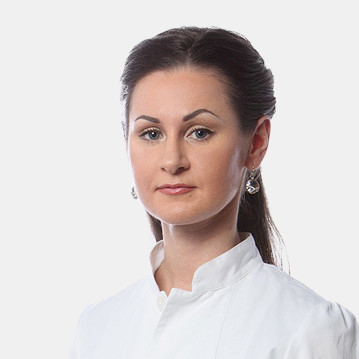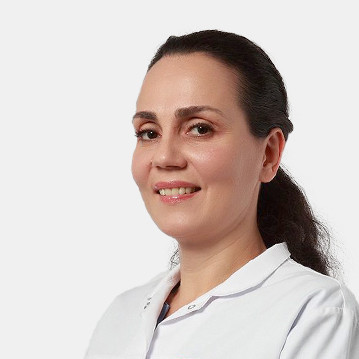1 day after embryo transfer
The procedure for transferring embryos into the uterine cavity begins with the collection of oocytes and their fertilization with the sperm of the spouse/partner in laboratory conditions. The diploid cell is cultured for 2-5 days, after which the prepared blastomeres are implanted into the uterus. On the 1st day after the embryo transfer, it is necessary to observe bed rest and calmness, since psycho-emotional overstrain and excessive loads can affect the results of the IVF procedure.

specialists

equipment

treatment
Transfer three-day and five-day embryos

The day of oocyte collection and fertilization in the laboratory is considered zero. After this, male and female reproductive cells are placed in a nutrient medium for 24 hours for fertilization. After evaluating the results, diploid cells are selected from the test tube, which begin to divide (blastomeres) and turn into embryos. Depending on the designated day for transfer, several embryos are cultured in an incubator for 2-5 days.
Usually, embryos that have been grown for 3 or 5 days are selected for implantation into the uterine cavity. The transfer day is determined by the reproductive specialist and depends on several factors:
- The number of oocytes obtained
- The reproductive age of the patient
- The number of previously performed IVF procedures
- The readiness of the endometrium for transfer
- Individual characteristics of the patient
If the woman is under 35 years old, 3-day embryos are used for implantation. In the final period of fertile age (over 40 years), it is recommended to perform IVF with five-day embryos, as they have a higher survival rate and the ability to implant in the uterine wall.
Answers to popular questions
What happens in the body after embryo transfer?
After the fertilized egg has moved into the uterine cavity, its implantation into the endometrium occurs within 2-8 days. Late implantation is more common during the IVF procedure, due to the long period of adaptation of the blastomeres to the new environment.
The following factors influence the timing of embryo implantation into the uterine wall:
- Condition of the endometrium
- Psychoemotional state
- Hormonal background
- Acute infectious diseases, etc.
At 1 dpt in five-day-old embryos, the fertilized egg continues to develop. A 16-64-cell morula is formed from a 6- or 8-cell embryo, the cells of which continue to divide. And only on the second day after the IVF procedure does it turn into a blastocyst, consisting of hundreds of cells.
On the 3rd-4th day, the blastocyst leaves its shell and "finds" a suitable place for implantation. On the 5th day, it penetrates the endometrium and only on the 7th day does it complete implantation, after which its cells are divided into two types: those from which the embryo will develop and those from which the placenta will form.
Can a fertilized egg fall out of the uterine cavity?
A common fear among women who have undergone IVF is the risk of the embryo falling out of the uterus. The loss of the fertilized egg from the uterine cavity even before its implantation in the endometrium is excluded. The uterus is a muscular organ that communicates with the vagina through a hollow muscular tube (the cervix). After the IVF procedure, it contracts, which prevents the embryos from penetrating into the vagina.
Scientists conducted a study during which women were divided into two groups, after which air bubbles were introduced into the uterine cavity. The first group strictly observed bed rest, and the second did their usual activities without restrictions. After a certain period of time, specialists assessed the results: no special differences in the position of the "embryos" in patients of both groups were found.

This award is given to clinics with the highest ratings according to user ratings, a large number of requests from this site, and in the absence of critical violations.

This award is given to clinics with the highest ratings according to user ratings. It means that the place is known, loved, and definitely worth visiting.

The ProDoctors portal collected 500 thousand reviews, compiled a rating of doctors based on them and awarded the best. We are proud that our doctors are among those awarded.
Make an appointment at a convenient time on the nearest date
Price
Other services














































The first days after embryo transfer
The period after the embryo transfer into the uterine cavity before the hCG test is the most critical in the IVF procedure. To increase the chances of successful implantation of blastomeres and their normal development, women must strictly follow the doctor's recommendations regarding:
During the first 12-14 days after embryo transfer, life proceeds with certain restrictions, compliance with which increases the likelihood of the embryo being implanted into the endometrium for further development.